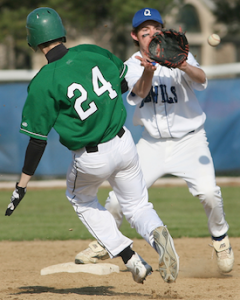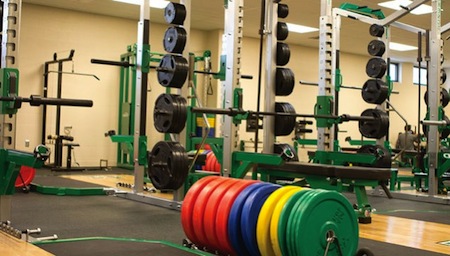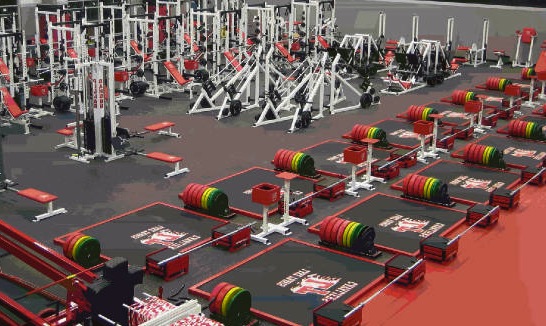(This post may contain affiliate links—meaning I may receive a small commission if you make a purchase through the links below at no extra cost to you.)
 Most high school ballplayers have a passion for the game and a desire to constantly improve. They want to win a State championship. They want to earn a college scholarship. However, very few have the resources to put in the work that is needed to succeed. They want the end result, but do not have the right leaders to guide them through the process of achieving it. That’s too bad, because they are missing out on valuable lessons that are learned during that process – hard work, commitment, and time management are just a few that come to mind.
Most high school ballplayers have a passion for the game and a desire to constantly improve. They want to win a State championship. They want to earn a college scholarship. However, very few have the resources to put in the work that is needed to succeed. They want the end result, but do not have the right leaders to guide them through the process of achieving it. That’s too bad, because they are missing out on valuable lessons that are learned during that process – hard work, commitment, and time management are just a few that come to mind.
High school baseball coaches should encourage this “process” of development and improvement. Some are better than others. This is true in any community. However, many high school baseball programs have apathetic leadership. Apathy is contagious and trickles down to the kids on the field. Maybe it’s not apathy. Maybe it’s just a lack of knowledge or coaches don’t know where to begin.
Passion and enthusiasm are also contagious, and young ballplayers thrive in environments where coaches and administrators challenge them to improve their athletic abilities not by just attending practices and games, but by creating and incorporating a solid strength & conditioning program.
Consider this, at the college and professional levels, there is a lot of money to be earned for teams and schools that win. Teams and players that win sell more tickets, sell more merchandise, and sign better endorsement deals than their counterparts who do not win. Millions and millions of dollars are invested in strength & conditioning professionals and high-tech facilities so that “investments” (athletes) are physically prepared to perform at the highest levels and stay healthy. Physically under-prepared athletes and those that are injured have a much more difficult time winning than those that have trained in a quality strength & conditioning program.
I truly believe high school baseball coaches know the value of strength & conditioning, but do not have the time, resources, or knowledge to create something for their teams and players. Most coaches would rather spend all of their time in practice working on fundamentals or taking more batting practice. Or, they add game upon game to a schedule that only seeks to hit the maximum limit allowed by state high school rules. Obviously, you cannot improve your game without putting time in on the diamond, but 14-18 year old kids only have so much energy and focus before hours and hours of practices and games becomes counterproductive. This is where the investment in a strength & conditioning program can help.
Having a Weight Room is Not a Program
High school coaches really cannot go wrong by establishing a year-round strength & conditioning program. It can only help their players. And at the end of the day, having better players usually equals more wins. What coach doesn’t want to win more? Unfortunately, most high school athletic departments do not employ a full-time strength & conditioning professional or have a strength & conditioning program.
Do not confuse having a weight room or “weights coach” with having a program.
Often times, the school’s football or wrestling coach runs the weight room, so other coaches who are looking for a strength program turn to them for help. But are those coaches qualified to run a strength & conditioning program? Most strength & conditioning professionals don’t claim that they know how to coach football or wrestling or baseball. Why do the coaches of those sports insist that they can run a strength & conditioning program?

The problem lies in the thought process. Most coaches were once athletes themselves. As athletes, they lifted weights and so they think they can implement a program for their kids. But, a well-organized strength and conditioning program involves more that just lifting weights. As discussed before, a baseball training program should incorporate flexibility, mobility, soft tissue work, nutrition, and use conditioning as way to boost performance not as a form of punishment. Baseball players should not train like football players or basketball players. Each baseball player should have his own program that is specifically designed for him. A lot of coaches think you can train all athletes alike. While there are a lot of similarities, it’s important to make specific adjustments based on the sport, and even more so based on the individual athlete.
So, we know a strength and conditioning program is absolutely essential for high school athletes to perform at a higher level. But, a solid program also helps athletes stay healthy in the process. Resistance training is the basis for modern physical therapy, which also incorporates mobility work, stabilization exercises, flexibility, and other manual techniques to return injured athletes back to the field of competition. Again, it’s not just about lifting weights. If physical therapists utilize similar approaches to help injured athletes, what does that say about the indirect benefits of a strength & conditioning program to keep non-injured athletes healthy?
High school baseball coaches enjoy coaching and want to win. But, many are not willing to admit that their programs are incomplete. It’s sad, because the players are the ones who miss out. The job of a strength & conditioning professional is to complement the coaching they provide to their athletes. Strength coaches do not want to teach your baseball team how to execute a hit and run, or how to set up a double cut on a ball hit in the gap. Strength coaches want to make your ballplayers stronger, faster, and more “bullet-proof” so that you can accomplish great things with them. High school coaches and athletic directors who have a program in place with a knowledgeable strength & conditioning professional will always outperform the competition. If you are a baseball coach or athletic director, do yourself and your players a favor and get your kids involved in a year-round strength & conditioning program that is run by a knowledgeable professional. Neglecting this area of athletic development places limits on the very athletes you coach.
——
If you are a high school baseball player or parent, please share this article with your high school baseball coach and tell him you want to get involved in a strength & conditioning program.
Discover more from Baseball Training Methods
Subscribe to get the latest posts sent to your email.


